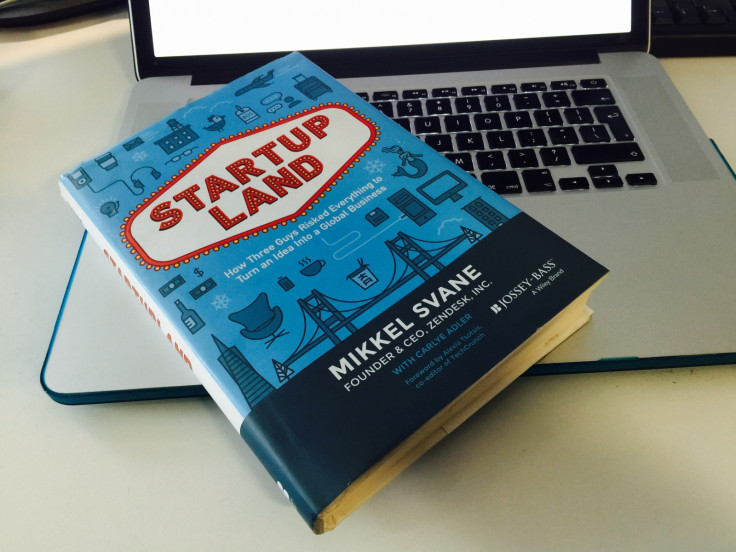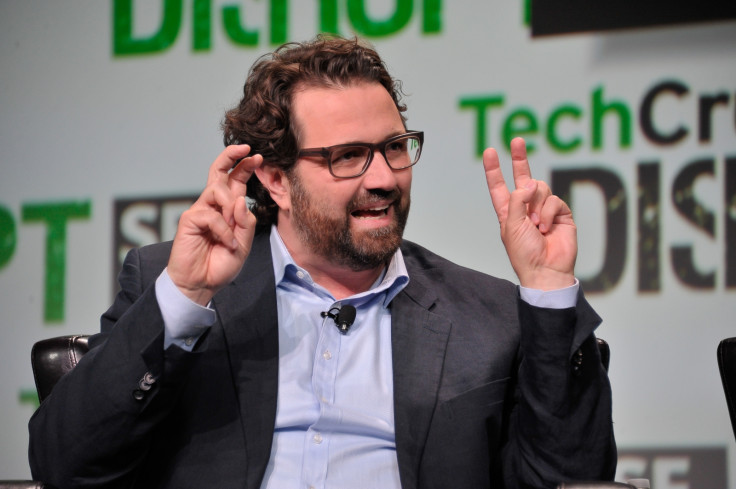StartupLand Review: How being boring helped build a billion pound business

Everywhere you turn these days someone is launching a startup. Whether it's a few people brewing nettle beer or trying to build the next great app, being part of a startup is what all the cool entrepreneurs seem to be doing.
Looking in from the outside it looks incredibly easy. All you need to do is think of a cool name; launch a Kickstarter campaign; grow a beard and sit back until some big US company comes in and acquires you for a zillion pounds.
The reality of course is much, much different.
To grow a startup from nothing to a company the size of Facebook or Twitter does not just happen. It takes a huge amount of skill, hard work, and most importantly lots of luck.
This is the message that comes across loud and clear from Mikkel Svane's new book Startupland, which plots the rise of Zendesk from an idea discussed at a kitchen table in Copenhagen to its flotation on the New York Stock Exchange in 2014.
No formula for success
Zendesk is among a growing number of highly successful software-as-a-service (SaaS) companies. It offers cloud-based customer service software which is simple, straight-forward and easy-to-use.
While there are dozens of business books available with advice for entrepreneurs on how to build a startup from nothing, these are mostly cliche-filled tomes with no real, practical advice.

As Svane makes clear early on in Startupland: "I am allergic to pat business advice that aims to give some formula for success. I've learned there is no formula for success; the world moves too fast for any formula to last."
Svane's warts-and-all account of building his business is a practical guide for anyone thinking about starting down a similar path.
Be boring, not sexy
Zendesk is not Tesla. It is not Uber. It is not Facebook. Zendesk is boring - and that's a good thing when it comes to building a company says Svane's co-founder Alex Aghassipour when offering advice to young entrepreneurs:
"Pick an area of an industry that is overlooked, pick something that might seem be perceived as boring."
Aside from wanting to fix the fundamentally flawed customer service solutions on the market at the time, the other driving force behind the creation of Zendesk was happiness:
Startupland - Buy now on Amazon from £11.39
"A fear of forever being a hired gun rather than somebody who builds something and defines his own destiny. That is not where happiness comes from," says co-founder Morten Primdahl.
Biggest challenge
The book tracks the company's early days in Copenhagen and the struggles the three co-founders faced, dealing with having no money and working in confined spaces, which quickly exacerbated what now seem insignificant issues into major fights between the three.
This, Svane says, was the most difficult challenge Zendesk faced. "With so many temptations [job offers] - and such a difficult reality - keeping everyone committed was a nightmare. This was the biggest challenge of doing a startup - and I later learned, the point at which most of them fail."
The book is interspersed with specific, practical sections which dispense advice on everything from working from home, how to ask friends and family for money, and even how to overcome your fear of flying.
The book is a fascinating insight into the details of building a startup which you typically don't hear about, including the time Zendesk was "blackballed" by TechCrunch founder Michael Arrington, sending the team into a spiral of fear (this was at the time when the website was the bible of Silicon Valley and being ignored by them was a disaster).
Personal
As well as giving details of how he and his co-founders built Zendesk from the ground up, Svane balanced this with intimate details about his personal life and the challenges he faced moving a young family from its home in Copenhagen to the United States when the company began to take off.
This adventurous spirit seems to be genetic as Svane revealed that his grandfather was the first man to travel around the world on a motorcycle back in 1912, before settling in New York.
Taking a young family halfway across the world is a daunting prospect and Svane details the struggles they encountered on the way, including one incident where his young daughter locked the bathroom door in their new house and the entrepreneur laboured for hours to get it unlocked, when he should have been preparing for an important meeting.
In the end Zendesk made it. It is now a public company worth around $1.8bn (£1.17bn, €1.58bn) and all three founders continue to work together. Clearly this is not always the case, but Svane details enough of the pitfalls the company narrowly avoided to act as a rough guide for those starting out on the startup path.
Startupland is a clear and honest account of what it took to build Zendesk from nothing to the public company it is today. It doesn't shy away from the in-fighting, betrayal and financial woes the founders encountered along the way, and that is what makes it such a compelling read.
© Copyright IBTimes 2025. All rights reserved.






















